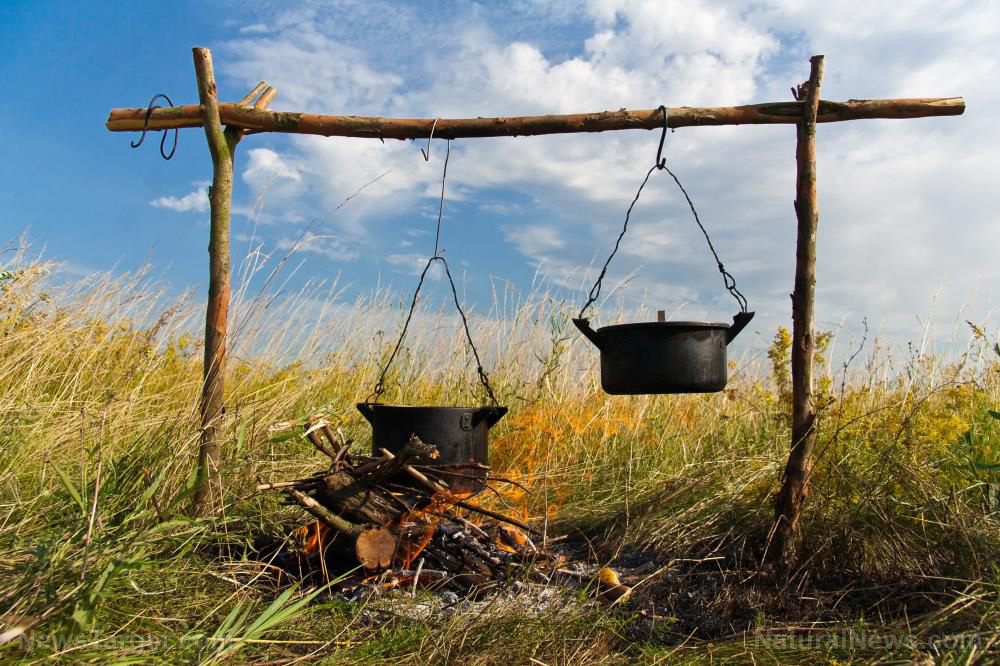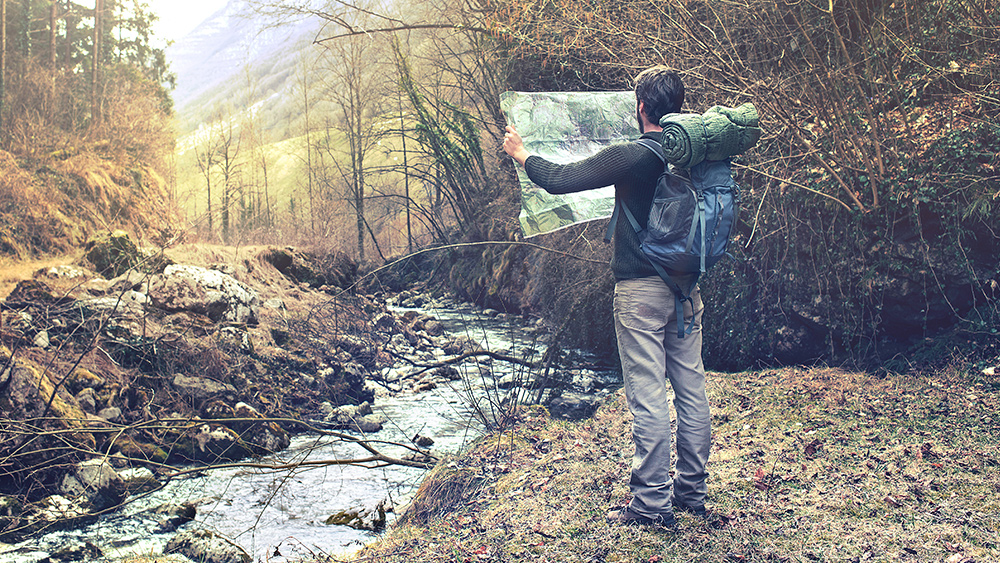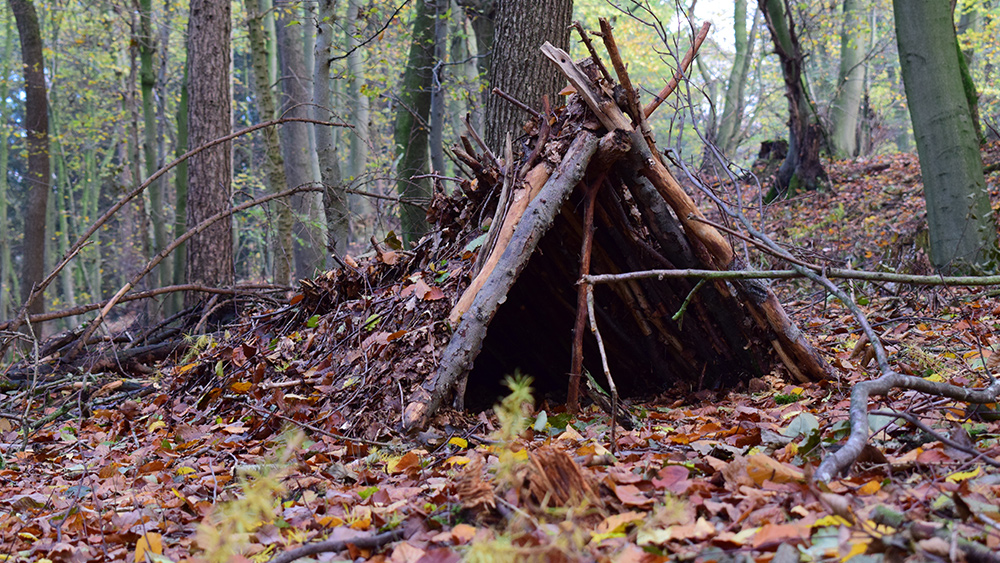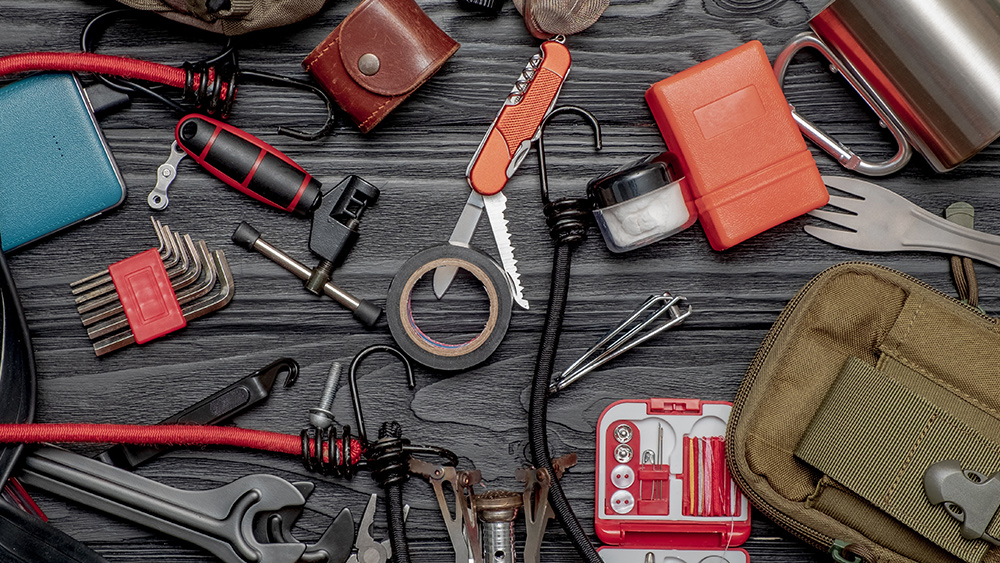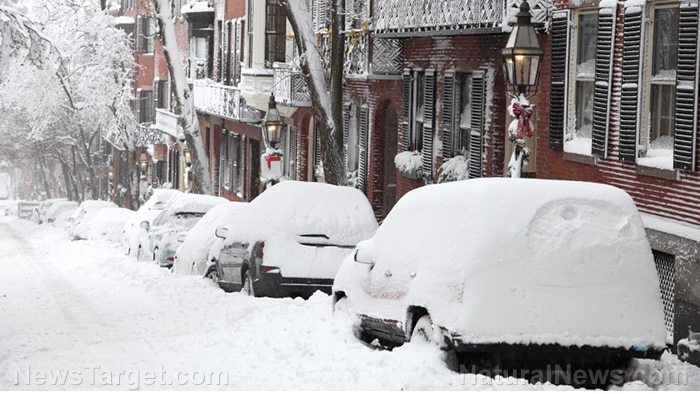
Winter presents different challenges, especially if you are often on the road.
If you want to avoid common winter survival scenarios like getting stuck in the snow, prepare your winter car emergency kit before driving in cold and unpleasant weather. (h/t to PreppersWill.com)
Tips to avoid getting stuck on the road
If you're lucky, getting stuck in the snow is just a minor inconvenience. But when SHTF, getting stuck in snow can sometimes be life-threatening.
If you have to go on long winter drives, follow the tips below to make sure you don't get stuck on the road:
Tell someone where you're going
Email or call your family and tell them where you’re going, how long you think it will take you to get there and what they should do if you’re not there within your estimated time of arrival. (Related: Heat, shelter and survival: 22 Winter safety tips for preppers.)
Buy season-appropriate tires
Make sure your car’s tires can handle the road ahead. Get a set of snow tires, and a couple spares, and test them for handling the roads where you need to go.
Drive carefully
Even if you're in a rush, it's better to arrive somewhere a little later than drive too fast, or carelessly, and potentially get in an accident on the road.
Always prep a winter safety kit
Before you leave your house to go on a long winter drive, prepare a winter car emergency or safety kit and include essential supplies like road flares, a first aid kit and food and water.
Supplies to get your car out of the snow if you get stuck
You will need these tools to get your car unstuck:
Bag of sand
Sand can turn an icy surface into a drivable one. Make sure you have a bag of ordinary playground sand in your trunk or car emergency kit.
Entrenchment tool
An entrenchment, or entrenching, tool is a folding shovel with a pick end. Get one at a local military surplus store.
Reflective triangles
If your car is stuck on the road, you need reflective triangles to warn other drivers about your presence. Place them far enough so that other drivers have time to slow down.
Remember that most experienced drivers expect to see your car stuck on the same side of the road where the reflective triangles were placed. Alternatively, you can place a reflective triangle on the roof of your car so you can be seen from the air if your car gets snowed in.
Road flares
Use road flares properly to alert others about your presence, regardless of whether the rescue teams travel by land or air.
Note that regular road flares can also be used to start a fire, but not electrical flares.
Spare tire
Snow and ice may hide different road hazards that can puncture your tires. Bring a winter spare tire or two if you know that you will be driving in extreme weather conditions.
Tow strap
Include a tow strap in your car kit. Don’t use rope or bungee cords because they are usually not strong enough.
Traction pads
A traction pad is a piece of foldable, ribbed plastic plate that you place under the tire to help get some grip. Get a pair for your car.
Survival supplies you will need if SHTF
These additional supplies can help improve your chances of surviving when disaster strikes.
Carbon monoxide detector
A passive carbon monoxide detector is crucial if you think you may need to keep your engines running to get warm. Use the detector the minute you get stuck in the snow and you have no choice but to stay in your car.
Fire extinguisher
You should always have a car fire extinguisher in your emergency kit so you can deal with a fire while on the road.
First aid kit
Prepare a basic first aid kit for your car and include any prescription medication that you are required to take daily.
Food
When prepping food for your winter car emergency kit, you need items that you can eat without being warmed or cooked.
This includes food or snacks such as:
- Hard candy
- Jerky
- Peanut butter with crackers
- Protein bars
- Trail mix made with nuts, seeds, raisins and other dried fruit
- Unsalted and canned nuts
If you want to add other foods to your kit, make sure they have a long shelf life and provide good nutrition.
Items that will help you stay warm
Things like an extra set of clothing, hats, mittens, a sleeping bag and Mylar blankets will help you stay warm if you have to stay in your car for several hours.
Make sure you also have some heating packets and a parka. If you have a flat tire or something else goes wrong with your car, you may need to work outside to get your car unstuck or signal for help.
Water
Add several bottles of water to your car kit so you can stay hydrated until help comes. Carry as many as you think will be needed for yourself and for your vehicle’s radiator.
Extra items for your winter car emergency kit
Some additional items to consider include:
Extra fuel
If your area is remote and you're worried about running out of gas during winter, try to always keep your tank full and keep a spare can of fuel in your car.
Don’t store the fuel inside the car because it is a fire hazard and a health risk.
Personal locator beacon
Personal locator beacons are available in different sizes and have various functions.
The simplest beacon will send a basic radio signal that can be intercepted by rescue teams so they can find your location faster. Use a personal locator beacon if you often travel to remote areas.
Pack a winter car emergency kit with essential survival supplies like food, water and tools like traction pads so you can get your car unstuck.
Watch the video below for more winter survival tips.
This video is from the Exit Babylon channel on Brighteon.com.
More related stories:
Winter survival: Ways to stay warm when the power goes out.
Prepper must-haves: What to stock up on before a summer or winter power outage.
This is going to be a winter like no other.
Sources include:
Please contact us for more information.
















